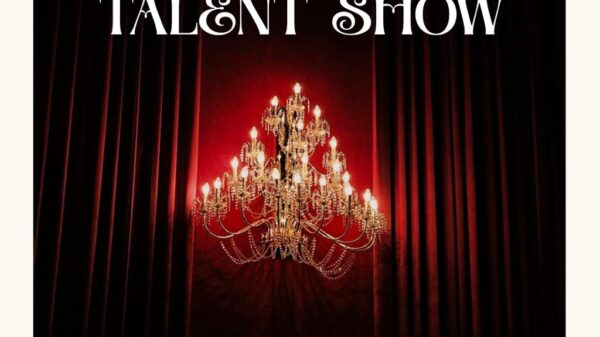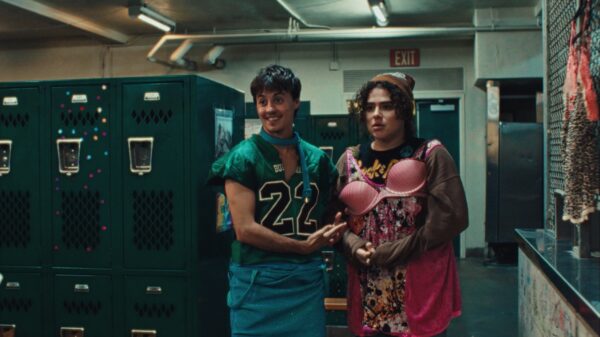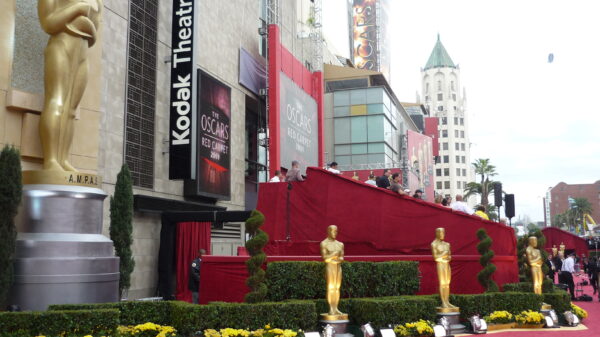Staff Writer Joe Breuer provides an insight into ‘Dune: Part Two’ reviewing its journey from the first movie and its place in the current cinema climate.
After a two-and-a-half year wait, it is finally over. I am not joking when I tell you I have been counting down the days. Though divisive, ‘Dune: Part One’ is one of my favourite films of all time, holding a special sandy place in my heart. I honestly found the experience comparable to gospel music, an almost spiritual experience. Which is just as corny to say as it is true. The spectre of Frank Herbert’s novel ‘Dune’ has haunted Hollywood for decades. After a failed adaptation by Alejandro Jodorowsky and a commercial flop featuring a milking cat by David Lynch, Denis Villneuve is the first filmmaker to put Herbert’s universe on the big screen. And to an enormous success. I remember reading the book at 14, and being so sure that I would be the chosen one, the one to deliver ‘Dune’ to film. But I am delighted to say that I let someone else do all the work. The result, is a fantastical piece of science fiction that cements itself as one of the greatest of its genre, and perhaps of the decade. Like ‘The Empire Strikes Back’ or ‘Return of the King’ before it, ‘Dune: Part Two’ truly is the cinematic event of its time.
As I’m sure you can figure out, ‘Dune: Part Two’ is the much anticipated sequel to ‘Dune: Part One’. But the two parts can easily be seen as one big movie, adapting the latter half of the first book. Villneuve’s vision is uncompromising in intensity and for modern audiences. Herbert’s novel tends to over-explain the narrative to his reader, while Villneuve’s adaptation assumes the audience’s intelligence, and allows them to let the narrative unfold for itself in an almost matter of fact manner. It is so reassuring watch a film and feel to be in the hands of such skill. I have been a long-time admirer of Villneuve, I would describe him swooningly as “my hero”. His grasp of mood and philosophy are woven into ambitious and ambiguous narratives. However, I believe this will be the film to cement him as a household name among his contemporary filmmakers.
If you haven’t already seen the posters plastered on every bus and stop, the cast is thorough. Every performance holds such presence. Especially Austin Butler as the malevolent Feyd Rauthra Harkonen. Unrecognisable from ‘Elvis’, he is lizard-like in nature. Timothee Chalamet as Paul Atredies is historic casting. He is perfectly pitched and brings an unforseen gravitas to the role in his previous performances. His character develops in a trajectory that should be unnerving for audiences, however, Chalamet’s form is consistent throughout. If Butler is reptilian in his role, then picture Chalamet as a manipulative, genocidal mouse. Zendaya is equally incredible as the Fremen Fedaykin, Chani. She owns each moment, more than making up for the 30 seconds of screentime if ‘Part One’.
Despite the immense cast, many performances are fleeting, such as Florence Pugh as the Princess Irulan and Lea Seydoux as Margot Fennring. But this does not diminish their powerful presence. Everyone is at peak performance throughout. In amongst the young Hollywood talent are veteran stars such as Rebecca Furgeson as Paul’s Mother and Bene Gesserit witch Lady Jessica, Stellan Skarsgard as the enegmatic but horrifying Baron Harkonen, Christopher Walken as The Galactic Emperor (no, not that one). And Javier Bardem stands-out above the rest as Fremen Leader Stilgar.
Taking place mere moments after ‘Part One’, the sequel is equally epic in scale and sublime in construction. But ‘Part Two’ is not the meditative audiovisual experience of the first. And in a way, that’s a good thing. Many people I know found the first film “boring”, ‘Part Two’ is far from it. The narrative rises and ebbs in intensity but is perpetually engaging. It is more action heavy than the controlled pace and world-building in ‘Part One’. The fight scenes are simply stand-out. So far each crowd of my four viewings have sat in silent awe at each showdown. Holding in a collective sigh.
Audiences will find ‘Part Two’ easier to enjoy, but not necessarily easier to digest. This action-heavier approach does not come at the cost of thematic depth or a complex narrative. Like the witches of the Bene Gesserit, Villneuve planted ideas in ‘Part One’ for the second film to explore in further depth. Nor does this slow ‘Part Two’ down. The almost 3 hour movie moves with such pace and force. Slumped in my seat I would notice my heart beating ever heavier as time passed.
This is in no doubt due to the rich craftsmanship on display. As if he even needs any introduction or any more praise, Hans Zimmer’s score is sensational. The deep operatic instrumentals score the scope of each scene. With distinct cultural influence and an otherworldly texture, this soundtrack feels like his most film-specific. Not to go full film-student, no one wants to hear that, but Joe Walker’s editing can only be described as perfection. I think “sexy” might be a bit much, but it was my first choice. Every striking shot is allowed to linger in glory, each cut precise and places performance at the forefront.
Even if you don’t understand what is happening in the story of galactic politics, plans within plans, prophectic dreams, alternate timelines and layered worldbuilding, you can just let the film’s grandeur wash over you. It’s worth witnessing for the cinematography alone. Grieg Fraser is at the top of his game here, bringing his tyically grounded, brooding approach to ‘Dune’s’ immensity and scale. I am no prophet but I already see next year’s technical Oscars in my dreams.
The biggest fans are critical of what they love. And although scathing overall, the film’s approach to imperialism, coloniality and the Middle Eastern cultures with which it engages is necessary to address. After the Second World War, Frank Herbert observed how easily society could fall to violence in the name of a cause. Thus, ‘Dune’ condemns colonialism disguised by religion and heroism. Herbert’s warnings against charasmatic saviour figures and false-prophets were truly visionary and are rendered fearfully on-screen. A horrifying portrayal of white imperial control through messianic religious influence is wholly engaged with by Villneuve. The first film sewed subtle seeds for the sequel to tackle the white-saviour narrative head-on.
While this aspect succeeds, the handling of Arabic influence is perhaps questionable. On the page, these influences are revered and respected. Villneuve likely strived for the same, the Fremen culture is portrayed positively overall. However, given that film is a visual medium, it can be argued that these influences become appropriated and sensationalised by a white Western gaze. Look no further than the costuming of Lady Jessica in both films. This perpetuation of Western Orientalism is more noticeable given the lack of South Asian and Middle Eastern actors in the leading Fremen roles.
Inspite of a self-aware anti-colonial sentiment, ‘Part Two’ has its fair share of cultural obstacles. In addition, fans of the books may find it a pity that Villneuve does not dive as deeply into the novel’s vital environmental themes as possible. The Imperium economy’s dependency on Spice is allegorical for the West’s parasitic relationship with oil. A wedding of ecological awareness and anti-imperialism. The film is dense enough as is. However, the themes of climate-imperialism are strictly subtextual. Rather than addressed as essential to this narrative. I am also conflicted on Villneuve’s choice of aesthetic. Opting for a more modern, gritty militarism vision of Herbert’s world. Instead of the fantastically ethereal and inhuman detail described in the novel. One that is so far distant from our imagination but within anthropological understandings. Don’t get me wrong, I like bagpipes as much as the next guy. But you mean to tell me that we kept those 20,000 years from now?
‘Dune’s’ place in popular culture is seminal. And while instantly recognisable comparisons to ‘Star Wars’, ‘Avatar’, ‘Game of Thrones’ and even the cinema of Christopher Nolan and Peter Jackson may seem apt to some, ‘Dune: Part Two’ and its predacessor are truly unlike any other film. Especially of this budget. How rare it is that a blockbuster is so dense and subtle, so massive in scope and scale. As blisteringly brutal, cynical, detailed, pensive and driven by craft as ‘Dune: Part Two’. Made with so much vision and heart. A majestic and mythological force of a film. This is a filmmaking miracle in the modern era of blockbusters. In my eyes, the wait was worth every day.
















